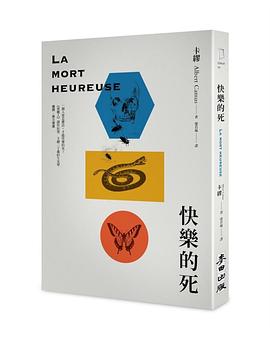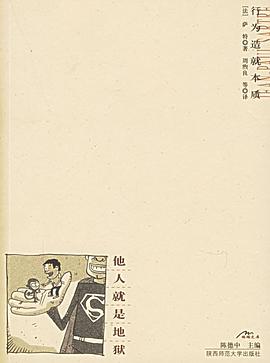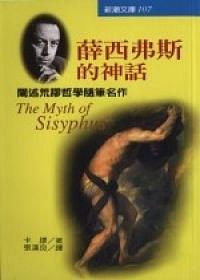

具體描述
The Stranger is not merely one of the most widely read novels of the 20th century, but one of the books likely to outlive it. Written in 1946, Camus's compelling and troubling tale of a disaffected, apparently amoral young man has earned a durable popularity (and remains a staple of U.S. high school literature courses) in part because it reveals so vividly the anxieties of its time. Alienation, the fear of anonymity, spiritual doubt--all could have been given a purely modern inflection in the hands of a lesser talent than Camus, who won the Nobel Prize in 1957 and was noted for his existentialist aesthetic. The remarkable trick of The Stranger, however, is that it's not mired in period philosophy.
The plot is simple. A young Algerian, Meursault, afflicted with a sort of aimless inertia, becomes embroiled in the petty intrigues of a local pimp and, somewhat inexplicably, ends up killing a man. Once he's imprisoned and eventually brought to trial, his crime, it becomes apparent, is not so much the arguably defensible murder he has committed as it is his deficient character. The trial's proceedings are absurd, a parsing of incidental trivialities--that Meursault, for instance, seemed unmoved by his own mother's death and then attended a comic movie the evening after her funeral are two ostensibly damning facts--so that the eventual sentence the jury issues is both ridiculous and inevitable.
Meursault remains a cipher nearly to the story's end--dispassionate, clinical, disengaged from his own emotions. "She wanted to know if I loved her," he says of his girlfriend. "I answered the same way I had the last time, that it didn't mean anything but that I probably didn't." There's a latent ominousness in such observations, a sense that devotion is nothing more than self-delusion. It's undoubtedly true that Meursault exhibits an extreme of resignation; however, his confrontation with "the gentle indifference of the world" remains as compelling as it was when Camus first recounted it. --Ben Guterson
From Library Journal
The new translation of Camus's classic is a cultural event; the translation of Cocteau's diary is a literary event. Both translations are superb, but Ward's will affect a naturalized narrative, while Browner's will strengthen Cocteau's reemerging critical standing. Since 1946 untold thousands of American students have read a broadly interpretative, albeit beautifully crafted British Stranger . Such readers have closed Part I on "door of undoing" and Part II on "howls of execration." Now with the domestications pruned away from the text, students will be as close to the original as another language will allow: "door of unhappiness" and "cries of hate." Browner has no need to "write-over" another translation. With Cocteau's reputation chiefly as a cineaste until recently, he has been read in French or not at all. Further, the essay puts a translator under less pressure to normalize for readers' expectations. Both translations show the current trend to stay closer to the original. Marilyn Gaddis Rose, SUNY at Binghamton
Copyright 1988 Reed Business Information, Inc. --This text refers to the Hardcover edition.
Review
“The Stranger is a strikingly modern text and Matthew Ward’s translation will enable readers to appreciate why Camus’s stoical anti-hero and devious narrator remains one of the key expressions of a postwar Western malaise, and one of the cleverest exponents of a literature of ambiguity.” –from the Introduction by Peter Dunwoodie
From the Hardcover edition.
Description
Through the story of an ordinary man unwittingly drawn into a senseless murder on an Algerian beach, Camus explored what he termed "the nakedness of man faced with the absurd." First published in 1946; now in a new translation by Matthew Ward.
Language Notes
Text: English (translation)
Original Language: French
From the Inside Flap
Through the story of an ordinary man unwittingly drawn into a senseless murder on an Algerian beach, Camus explored what he termed "the nakedness of man faced with the absurd." First published in 1946; now in a new translation by Matthew Ward.
著者簡介
Born in Algeria in 1913, Albert Camus published The Stranger–now one of the most widely read novels of this century–in 1942. Celebrated in intellectual circles, Camus was awarded the Nobel Prize for Literature in 1957. On January 4, 1960, he was killed in a car accident.
圖書目錄
讀後感
在书店工作期间,最快乐的时候,便是与对胃口的人聊起彼此都喜欢的书的时候。 比如某天看到有姑娘在向她的朋友推荐加缪的《局外人》,边上的我憋不住接了一句:“这本书我也很喜欢。我曾经在三个月里连看了三遍,包括两个译本,仍意犹未尽,想再去看郭宏安的译本。” 那姑娘叫...
評分每隔些年读《局外人》都会有新收获,大概这是判断一本书能不能列为经典的标准。 1. “活在当下”既积极也消极。好的部分,那就是容易在日常生活里获得快乐。比如默尔索下班后和同事一起追着卡车跑,气喘吁吁,只为了去听卡车链条哗啦声与内燃机噼啪声。比如沿着码头傍晚散步,...
評分对于世界 我永远是个陌生人. 我不懂它的语言 它不懂我的沉默 我们交换的只是一...
評分对于世界 我永远是个陌生人. 我不懂它的语言 它不懂我的沉默 我们交换的只是一...
評分阳光。阿尔及尔灼热的阳光,晒得人晕头转向,每当我试图对《局外人》的阅读过程中产生的思绪作一番整理时,笼罩在头脑中的,全是书中那无数次出现的灼热阳光。 阅读是轻松的,平淡的陈述中甚至感觉到诗意流动。纯粹明洁的句子,使人在阅读时,身临其境。 为母亲守...
用戶評價
恰恰就在這個不尋常的星期讀瞭這個有意思的小故事。Meursault身上依稀能看見自己的影子,總是悠然自若“理智地“控製自己的情緒。從不被周圍人的評論、道德審判、宗教約束的自由精神。卻偏偏碰上瞭一件沒法解釋的暫時性完全失控。我和Meursault一樣,完全的失控,卻並不後悔。ps卡繆是老陀的崇拜者吧,為什麼幾次提到Meursault 案子審理後還有一起殺父案?
评分畢業迴國的飛機上讀的。十二個小時的飛機一大半都在哭,哭纍瞭看,看纍瞭睡,睡醒瞭哭。I knew that a part of me had died.
评分一切也是太熱的原故。
评分Don't really like the absurd hero.
评分恰恰就在這個不尋常的星期讀瞭這個有意思的小故事。Meursault身上依稀能看見自己的影子,總是悠然自若“理智地“控製自己的情緒。從不被周圍人的評論、道德審判、宗教約束的自由精神。卻偏偏碰上瞭一件沒法解釋的暫時性完全失控。我和Meursault一樣,完全的失控,卻並不後悔。ps卡繆是老陀的崇拜者吧,為什麼幾次提到Meursault 案子審理後還有一起殺父案?
相關圖書
本站所有內容均為互聯網搜索引擎提供的公開搜索信息,本站不存儲任何數據與內容,任何內容與數據均與本站無關,如有需要請聯繫相關搜索引擎包括但不限於百度,google,bing,sogou 等
© 2025 book.quotespace.org All Rights Reserved. 小美書屋 版权所有




















